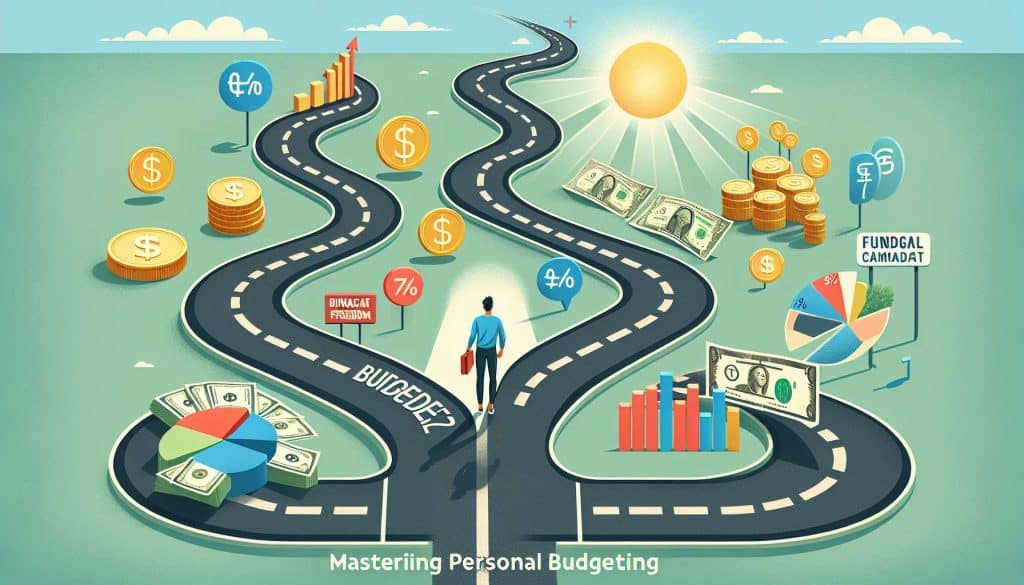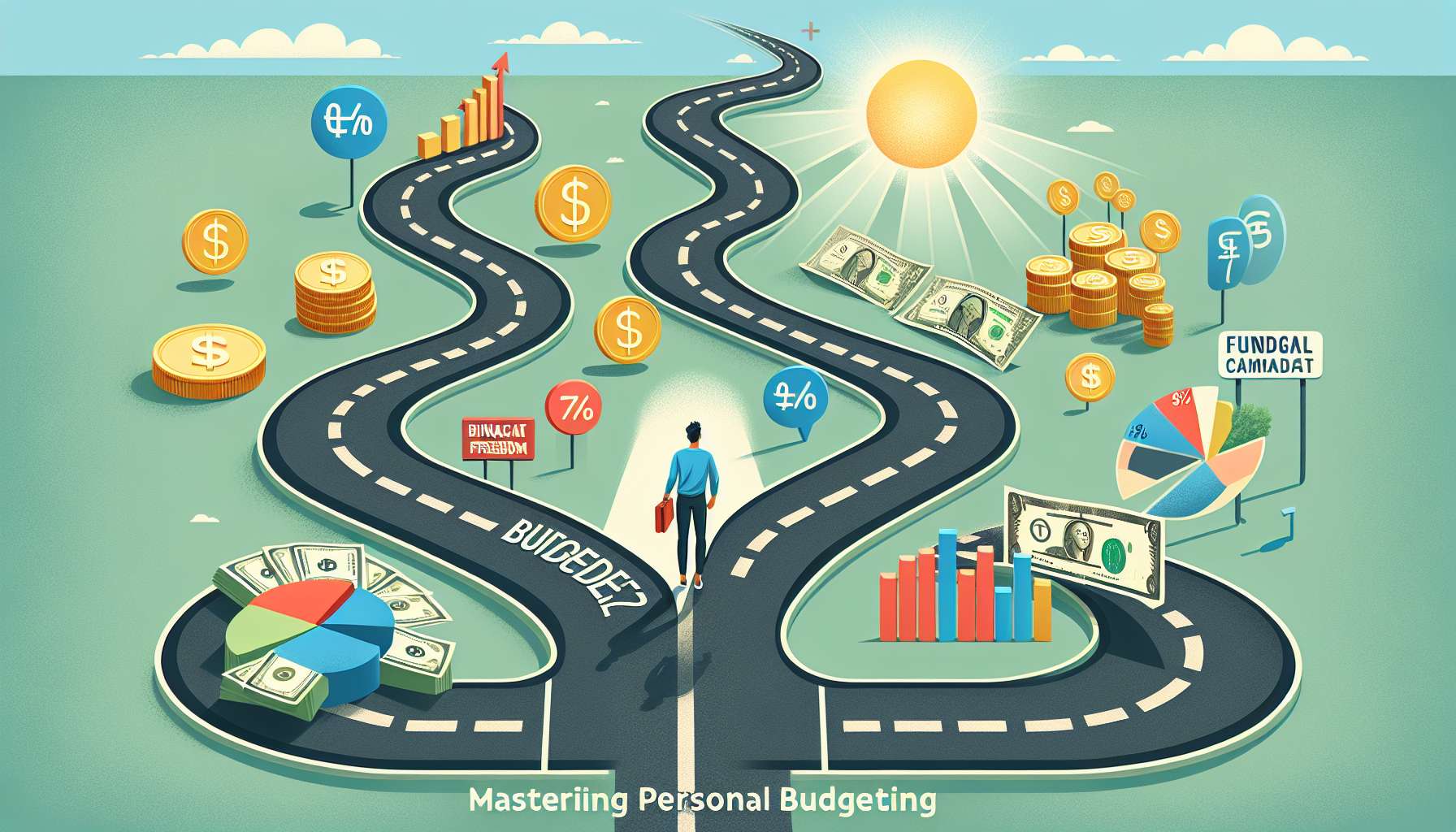Achieve Financial Freedom: Master Budgeting with Expert Tips & Strategies


**Mastering Personal Budgeting: A Path to Financial Stability**
Anúncios
In the ever-evolving financial landscape, understanding and mastering personal budgeting is more essential than ever. With costs rising and economic uncertainty looming, a well-planned budget becomes a reliable ally. Budgeting isn’t just about crunching numbers; it involves strategically managing your financial resources for better control, less stress, and steady progress toward financial goals. Whether you’re planning a dream vacation or a comfortable retirement, a sound budgeting strategy forms the cornerstone of financial independence. This guide will outline practical steps for creating your budget while highlighting common mistakes and offering actionable advice.
Crafting and sticking to a personal budget serves numerous vital purposes. Primarily, it helps you recognize and understand your spending patterns. Awareness leads to informed decisions, allowing you to reduce non-essential expenditures. Additionally, budgeting encourages living within your financial limits, which is crucial to avoid falling into the debt trap. A well-established budget acts as your financial compass, steering you clear of unnecessary financial pitfalls by fostering a balanced approach to spending and saving.
Equally important is the role of a budget in preparing you for unexpected financial challenges. Life’s unforeseen expenses, whether medical emergencies or urgent car repairs, can disrupt any financial plan if unanticipated. By pre-allocating funds for emergency expenses, you ensure peace of mind amidst financial uncertainties. Moreover, a disciplined budgeting approach aligns with your long-term financial objectives, whether buying a home, funding a new business venture, or building a retirement fund, offering structured pathways to achieve them.
Evaluating the Situation
Begin your budgeting journey by assessing your current financial status. Start by listing all income sources, from your primary salary to side jobs or rental properties. Understanding your total inflow of cash establishes a baseline for future spending and saving plans. Next, categorize your expenses into fixed costs (like rent and insurance) and variable costs (such as groceries and socializing). Reviewing bank statements assists in identifying these patterns. By subtracting total expenses from income, you’ll have an accurate snapshot of your financial health, signaling whether you need to curb spending or if adjustments are necessary.
Clearly defined financial goals act as the foundation of successful budgeting. Without them, staying motivated and focused can be challenging. Employ the SMART criteria—Specific, Measurable, Achievable, Relevant, and Time-bound—to shape your financial aspirations. Immediate goals might include eliminating credit card debt within the year, while long-term plans could involve saving for a down payment on a house.
Developing Your Budget
With your financial goals and income-expenditure analysis in mind, it’s time to draft your budget. Establish limits for each category of spending, remembering that a budget is a guide, not a constraint. Start by prioritizing essential expenses and debt repayment; allocate savings following the 50/30/20 rule, adjusting to your circumstances. Remember to account for unforeseen costs and fund personal indulgences moderately, ensuring a balanced, enjoyable financial life.
Overview of Personal Budgeting
Tracking your budget consistently ensures it serves you effectively. Employ digital tools, spreadsheets, or traditional methods to monitor expenditures and tweak your financial plan regularly. Review budget performance monthly to identify necessary changes, aligning with life events like salary adjustments or relocations. This dynamic approach keeps your budget relevant, driving sustained progress towards financial goals.
Despite best efforts, common budgeting errors can derail financial plans. Not accounting for small purchases, being overly restrictive, overlooking irregular expenses, and ignoring long-term financial goals are frequent pitfalls. Including minor expenses in your budget ensures comprehensive tracking. Flexibility is crucial for maintaining budget discipline, avoiding burnout, and ensuring engagement.
Characteristics of Effective Budgeting
- Comprehensive Tracking
- Realistic and Flexible Allocations
- Support for Financial Goals
- Allowance for Irregular Expenses
- Regular Monitoring and Adjustment
Benefits of Personal Budgeting
Adopting a strategic budgeting approach empowers financial decision-making. It provides a buffer against life’s uncertainties and directs efforts toward achieving financial aspirations. Prioritizing expenses, preparing for emergencies, and aligning daily decisions with long-term goals form the essence of effective budgeting. The path to financial stability begins with a realistic, adaptable budget that controls spending and enhances saving.
Budgeting offers a clear plan for managing income and expenses, ensuring every dollar serves a purpose. Through careful planning, individuals can allocate resources effectively, addressing both immediate needs and future goals. This method reduces impulsive spending, fostering a disciplined approach to money management.
Regularly reviewing and adjusting the budget keeps financial plans aligned with changing circumstances. This ensures continued relevance and progress, accommodating life changes such as career advancements or lifestyle shifts. By revisiting your budget regularly, you can make informed financial decisions, enhancing overall financial well-being.
Additionally, budgeting provides the framework to balance essential and discretionary spending. This ensures enjoyment of life while progressing towards financial objectives. Embracing this balance is key to avoiding the constraints of overly restrictive financial plans.
By following these steps and incorporating the characteristics of effective budgeting, you’ll be on a successful path toward achieving financial peace and stability. Budgeting is not a one-size-fits-all process; it requires customization and ongoing attention. Embrace the journey, and watch as a disciplined budgeting approach transforms your financial outlook.





